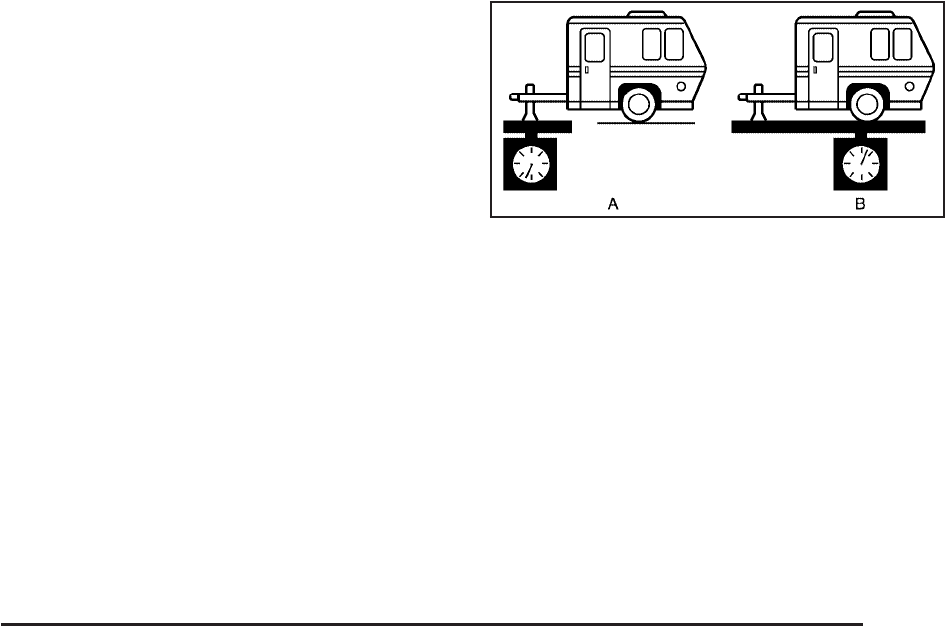
You can ask your dealer for our trailering information or
advice, or you can write us at:
Chevrolet Motor Division
Customer Assistance Center
P.O. Box 33170
Detroit, MI 48232-5170
In Canada write to:
General Motors of Canada Limited
Customer Communication Centre, 163-005
1908 Colonel Sam Drive
Oshawa, Ontario, L1H 8P7
Weight of the Trailer Tongue
The tongue load (A) of any trailer is an important weight
to measure because it affects the total or gross weight
of your vehicle. The Gross Vehicle Weight (GVW)
includes the curb weight of the vehicle, any cargo you
may carry in it, and the people who will be riding in
the vehicle. If you have a lot of options, equipment,
passengers, or cargo in your vehicle, it will reduce the
tongue weight your vehicle can carry, which will also
reduce the trailer weight your vehicle can tow. And if you
tow a trailer, you must add the tongue load to the GVW
because your vehicle will be carrying that weight, too.
See Loading Your Vehicle on page 4-31 for more
information about your vehicle’s maximum load capacity.
If you are using a weight-carrying hitch, the trailer
tongue (A) should weigh 10 to 15 percent of the total
loaded trailer weight (B).
After you have loaded your trailer, weigh the trailer and
then the tongue, separately, to see if the weights are
proper. If they are not, you may be able to get them right
simply by moving some items around in the trailer.
Total Weight on Your Vehicle’s Tires
Be sure your vehicle’s tires are inflated to the upper limit
for cold tires. You will find these numbers on the
Tire-Loading Information label. See Loading Your
Vehicle on page 4-31. Then be sure you do not go over
the GVW limit for your vehicle, including the weight of
the trailer tongue.
4-41


















